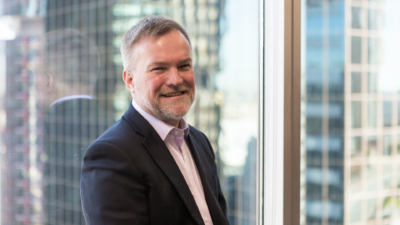Another reason cash is king
(Pictured: William Priest)
Last year was a record, of sorts, for share buybacks and other capital restructurings in the US. Fund managers who focus on company cashflows and what is done with them to deliver shareholder returns did very well.
It’s not only about the increased flexibility cash delivers a company through the safety of liquidity, it is also about the greater certainty that free cashflow demonstrates for a company’s true performance, according to Bill Priest, a veteran in this style of investing.
An accountant by training, Priest said on a visit to Sydney from his New York base as founder of Epoch Investment Partners, that “accounting is like a bathing suit – what it reveals is interesting but what it conceals is vital”.
“The difference between accounting and finance is cashflow. If you want to understand a company follow the cash,” he said.
The fastest way to add to shareholder value was to reinvest down to a certain hurdle rate, he said. With the current weighted average cost of capital at about 6 per cent, a typical hurdle rate would be between 12-15 per cent. If you can beat that hurdle rate through capital expenditure you will grow shareholder wealth faster than you would through share buybacks.
It was also true that it was more difficult for larger companies to add value through spending money than smaller companies, although Priest said Australia’s Amcor was a good example of a company which reinvested well.
Buybacks among S&P 500 companies in 2013 hit US$128 billion, on a quarterly basis, which was the second-highest point for 15 years. The highest was $170 billion in 2007, after which buybacks slumped to a trough of $24 billion in 2009.
The return from buybacks has averaged 21.0 per cent annualized for the past three years. This is the highest return of the five ways that a company can use its cash. The other four are: debt re-payment (18.9 per cent return over the three years); dividend payment (17.9 per cent); capital expenditure (13.6 per cent); and M&As (12.9 per cent).
Companies in most countries have been criticized by commentators since 2008 for not reinvesting as much as they usually would, and therefore not reinflating the economy nor growing employment. Companies have tended to blame the short-termism of fund managers who, in turn, blame the short-termism of their clients.
Priest said there were signs of a pick-up in capital expenditure in the US, from leading indicators such as shipments of capital goods and new manufacturing orders indices.
Epoch is one of a suite of managers represented in Australia by Grant Samuel Funds Management. The local firm has raised A$2.7 billion for Epoch since beginning its representation in 2007. It has three strategies represented: global equity shareholder yield; a global concentrated strategy; and a global small-caps strategy.










